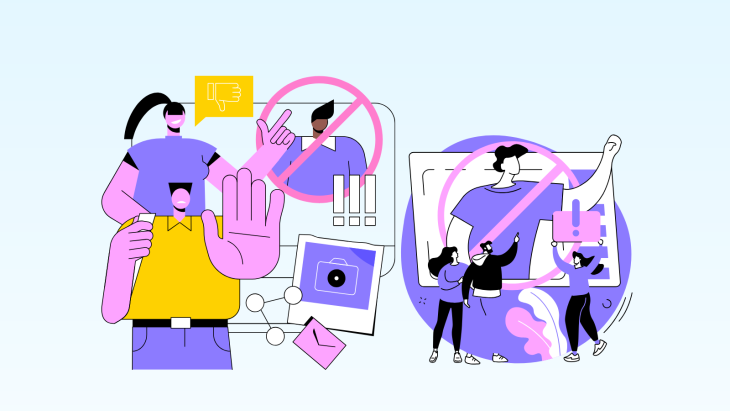Recent Posts
Most Popular
What is Cancel Culture?

Yearly, Merriam Webster releases a list of words that were first used in print, and in 2016, prominent terms included utility token, girlboss, and cancel culture. All three are somewhat related to social media, especially in their rise to becoming household names.
When you read several definitions of cancel culture, you will notice how there are several perspectives people view it.
On a more positive note, cancel culture is viewed as a tool to draw attention to someone’s unacceptable action or behavior, especially asking them to become accountable to the negative effects of these actions. This usually happens to public figures like celebrities, government officials, and politicians among others.
However, cancel culture is also linked to mob mentality, where people take a public stance and call out a person or a group who expressed ideas, or behaved, in a way that the public does not deem acceptable, and this campaign proliferates through social media. One main issue raised against cancel culture is its tendency to be used to suppress free speech.
What does the public think about cancel culture?
In 2020, Pew Research wanted to know the American public’s views on cancel culture, and they asked more than 10,000 people to define in their own words what cancel culture is. Of those 44% who have heard a lot about cancel culture, here are the most common definitions of cancel culture:
- ..is a set of actions taken to hold people accountable
- ..is a suppression or prohibition of speech or history
- ..is composed of hurtful actions that are taken to cause harm to others
- ..people questioning and withdrawing support from those whom they disagree with
- ..challenges the views of people who may face being boycotted or ostracized
- ..is an attack on the views of traditional American society
- ..a way to attract others to criticize actions that show racism, sexism, etc.
- ..a way to promote a misleading accounts of other people’s actions
As seen in these answers, cancel culture remains a debatable topic among the public.
The hand of social media on cancel culture
All throughout time, people have always challenged ideas that go against their own, and history is full of stories where the challenging of long-held beliefs led to dramatic and positive changes in the way society works.
However, with the use of social media, being critical, being challenging, and being tolerant of other people have taken on a new meaning. Showing support and withdrawing it have grown in speed, scope and impact.
Things to consider about cancel culture
With these different perspectives on cancel culture, it can be helpful to consider key thoughts about it.
- Why do we want to make a public stance on social media about a particular issue? Are we willing to say the things we say online and in social media when we are face to face with the one we are challenging?
- Do the people we are challenging have the power to make a change in the issue? Do we see them in a position of privilege?
- Do the actions/behaviors of the person warrant the public to campaign for intolerance against harmful acts?
- Are we engaging in cancel culture in order to promote social justice or are we quick to judge other people’s motives based on limited information?
Cancel culture can be a two-edged sword. It can be used to empower or to destroy. And with the voice that social media gives us comes the responsibility to wield its power conscientiously.
As the world becomes increasingly digital, let us develop critical thinking skills so that we can navigate the pros and cons of cancel culture.
Find job opportunities in the mental health field through a niche job board. Register at Gotham Enterprises Ltd.








Comments